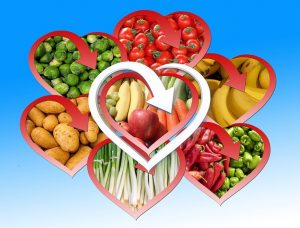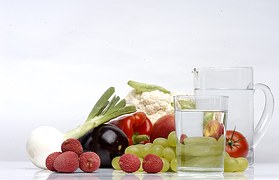Organic vs Conventional Fruits and Vegetables
When buying fruits and vegetables, consumers are most concerned about the quality and taste. The truth, most of the times, you need to buy organic products or produce your own to get the freshest and healthiest foods possible.
Now you can grow organic fruits and vegetables almost anywhere: at home, at school/college. There are many tools and products, wooden greenhouses for instance, on the market that can last many years. Wooden greenhouses are much heavier than their alumium counterparts and therefore will withstand harsh weather such as high winds and snow much better.
Why Organic Fruits and Vegetables ?
We know that regular consumption of fruits and vegetables generally has a beneficial effect on health, especially in the protection and prevention of diseases, as evidenced by many studies. However, studies have reported the presence of pollutants from chemicals (fertilizers, pesticides) on conventional fruits and vegetables can make them harmful to health. Organic may be a better choice.
Organic food is grown without fertilizers or artificial pesticides in a manner that maintains soil life which makes the foods have more nutrients.
More and more studies are conducted to measure the nutritional content of vegetables and fruits. The results of all of them show that organic fruits and vegetables have higher nutritional values than conventional. However, scientific studies do not show the relationship between these higher doses and long-term health.

The nutrient content of organic fruits and vegetables would be higher in many cases up to 81%, according to a study by Professor and Doctor Henri Joyeux from the University of Montpellier.
The study compared organic fruits and vegetables with their traditional counterparts by measuring the amounts of vitamins and nutrients. There would thus be 25% more vitamin C in organic tomatoes and lettuces, and 22% more vitamin in organic olive oil.
In nutrients, there would be 25% of more carotenoids and lycopene in the organic tomatoes, 65% carotenoids and 45% lutein more in organic lettuces compared to their conventional counterparts. In contrast, the content of nitrate is lower by up to 88% in organic potatoes and 25% in organic lettuces. The products of local farming, where fewer pesticides are used, are at an intermediate level.

That same study also found that the content of important nutrients, such as salvestrol, in organic vegetables and fruits would also be superior to conventional. Salvestrol plays a role in defense against cancer, according to British studies. Specifically, it is found in fruits that give off a certain bitterness in the skin: oranges, for example.
These same researchers insist that fruits and vegetables today, obtained by selecting and combining several races, contain less natural antioxidants because the food industry seeks to make them sweet and gentle. So do not just eat fruits and vegetables but those that are organic or from traditional breeds. This guarantees you they have increased content of important nutrients such as salvestrols.
Finally, polyphenols and salicylic acid, antioxidants and natural anti-inflammatory, would also be more present in organic vegetables and fruits according to several studies.



